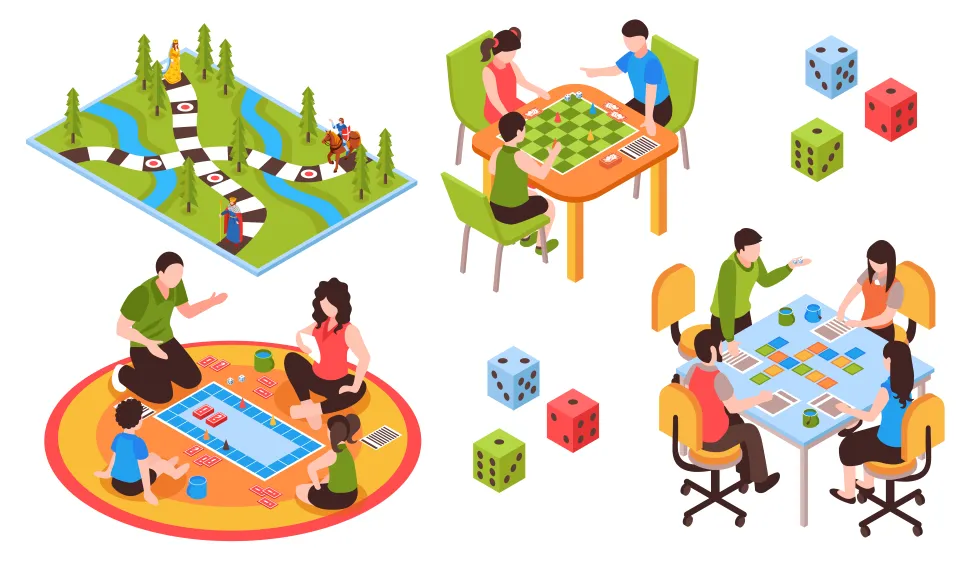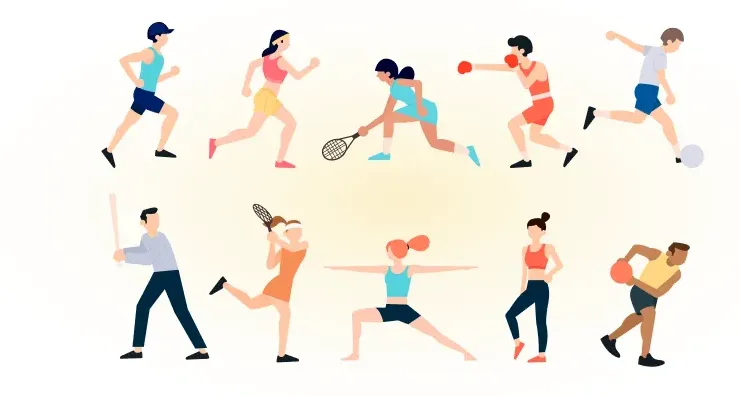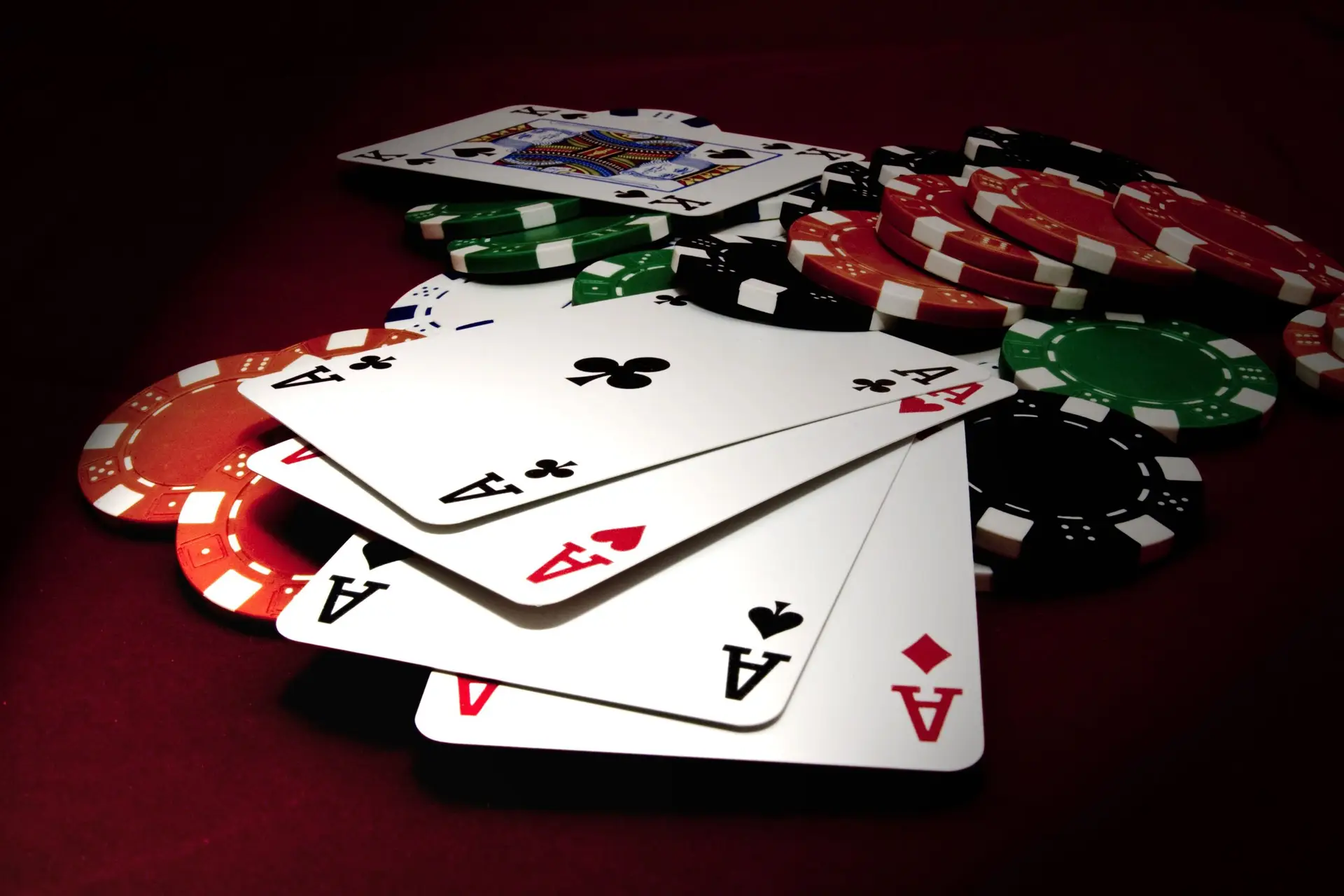What can a marathon runner and a chess player have in common? At first glance, they seem to be two different worlds: one hurtling along the track at a furious pace, the other sitting at the board in silence. But the connection between sport and mind games is much deeper than it seems. They are closely intertwined at the level of physical and mental development, and it is this unusual connection that allows us to unlock the full potential of humanity.
Linking sport and play: from physical activity to mental training
When we talk about sports, we imagine powerful muscles, endurance, sweat on the forehead and high reaction speed. We should not forget that behind all these physical achievements is some serious brain work. For example, jogging stimulates the production of endorphins, the joy hormones that help you cope with psychological stress. This activates not only the muscles but also the hippocampus, the area of the brain responsible for memory and learning.

Moreover, physical activity improves the blood supply to the brain, increasing concentration and the ability to solve complex problems. So the connection between sport and games is obvious: when the body is toned, the brain works more efficiently. That’s why many successful grandmasters pay a lot of attention to physical training – running, swimming or even yoga become their best allies in developing strategy and logic.
Mind and body training: how does sport affect intelligence?
Research shows that regular exercise can increase levels of brain-derived neurotrophic factor (BDNF), which promotes the growth of new neurons and keeps them active. This means that by exercising the body, people are also exercising the brain in parallel, improving cognitive ability, memory and decision-making.
A prime example is football players. In a game, they need to make instant decisions, analyse the situation on the pitch, choose the best moves – skills that are developed through regular training and physical exertion. The link between sport and games becomes undeniable: physical fitness helps to excel in intellectual pursuits as well.
Strategy and competitive spirit: common features of sport and mind games
 Any athlete or player knows that you cannot win without a strategy. A football player has to anticipate where his opponent will run and how his team can get around the defence. A chess player, on the other hand, thinks several moves ahead, calculating the possible reactions of his opponent.
Any athlete or player knows that you cannot win without a strategy. A football player has to anticipate where his opponent will run and how his team can get around the defence. A chess player, on the other hand, thinks several moves ahead, calculating the possible reactions of his opponent.
Take boxing, for example: every punch and every dodge is not just a physical action, but an element of a well-thought-out tactic. Similarly, a game of chess is a constant calculation, combinations and unpredictable moves. Both sports and mind games require the ability to analyse, anticipate and adapt:
- Boxing – tactical approach to every punch and move.
- Chess – constant planning of moves and adaptation to the actions of the opponent.
- Football – collective strategy, coordination of team actions, anticipation of the opponent’s manoeuvres.
- Tennis – analysing and adapting to the opponent’s style, exploiting weaknesses.
- Go – an ancient mental game that requires long-term planning and understanding of the board structure.
- Fencing – requires instant reaction and strategic thinking for attack and defence.
Competitive spirit: how the desire to win unites athletes and players
Competitive spirit is one of the strongest motivators in both sports and intellectual games. It stimulates people to give their best, to reach new heights, to improve. Imagine a tennis match: athletes feel incredible tension, because every ball can be decisive. The same thing happens at the chessboard – one mistake, one wrong move, and the game is lost.
The connection between sports and games is that the competitive spirit forces people to step out of their comfort zone, overcome themselves and strive for victory. Many factors are actively involved in this process, such as the release of adrenaline, which prepares the body for the fight, and endorphins, which maintain morale and motivation.
Winning sports and games is not just a statistical result. It is proof of perseverance, discipline and willpower. The competitive spirit helps improve planning skills, teaches you to adapt quickly to change and provides important lessons that apply to everyday life. This is why the desire to win is so important for athletes and players alike.
The psychology of winning and losing: what you can learn from sports and mind games
Winning is always euphoria, a feeling of triumph and pride in your achievements. But defeat is an equally important lesson. It teaches resilience, the ability to analyse your mistakes and work on them. Sports and intellectual games are equally important in this respect: every loss is a chance to become better, to realise your weaknesses and strengthen them.
When a chess player is defeated, he analyses every action, understands where he went wrong and draws conclusions for the future. When an athlete fails in a competition, he also analyses his actions and trains even harder. The connection between sport and games is evident in the psychology of winning and losing – both worlds teach important life lessons.
Social phenomenon: sport and games as a form of communication
Sports and games play a huge role in the life of society. They unite people, create communities, form cultural traditions. Think of the Olympic Games – a huge social event that brings peoples and cultures together.

Or take board games – they have become a popular way to spend time with friends, develop logic and simply enjoy socialising. Both bring people together, help to make connections and establish communication.
Conclusion
 In fact, the connection between sports and mind games is deep and multifaceted. They mutually enrich each other, help develop the body and mind, teach strategic thinking and overcoming difficulties. Together, they make people better, stronger and wiser.
In fact, the connection between sports and mind games is deep and multifaceted. They mutually enrich each other, help develop the body and mind, teach strategic thinking and overcoming difficulties. Together, they make people better, stronger and wiser.
 en
en  ru
ru  de
de  ar
ar  es
es  nl
nl  hi
hi  fr
fr  it
it  pt
pt  el
el 











